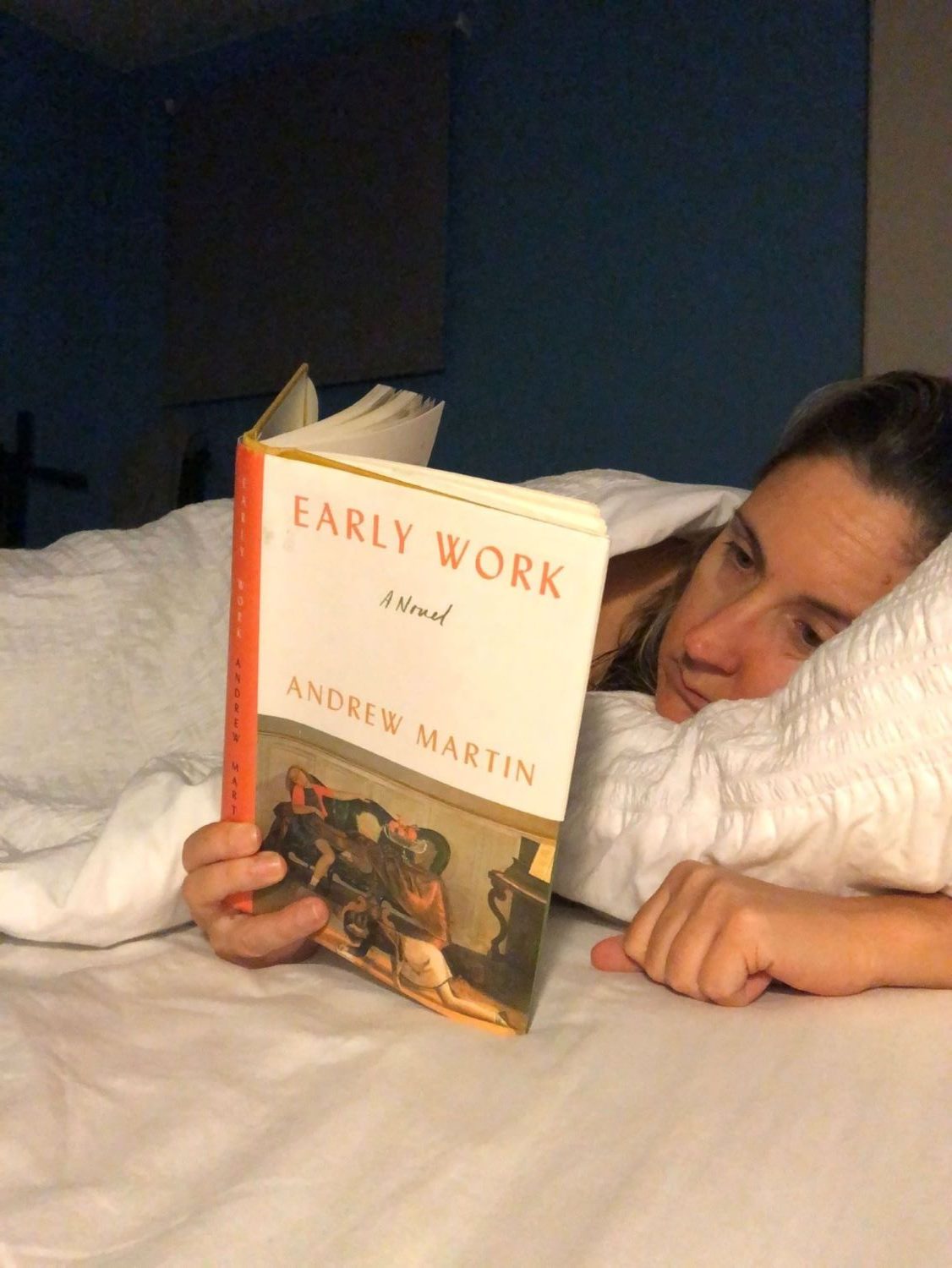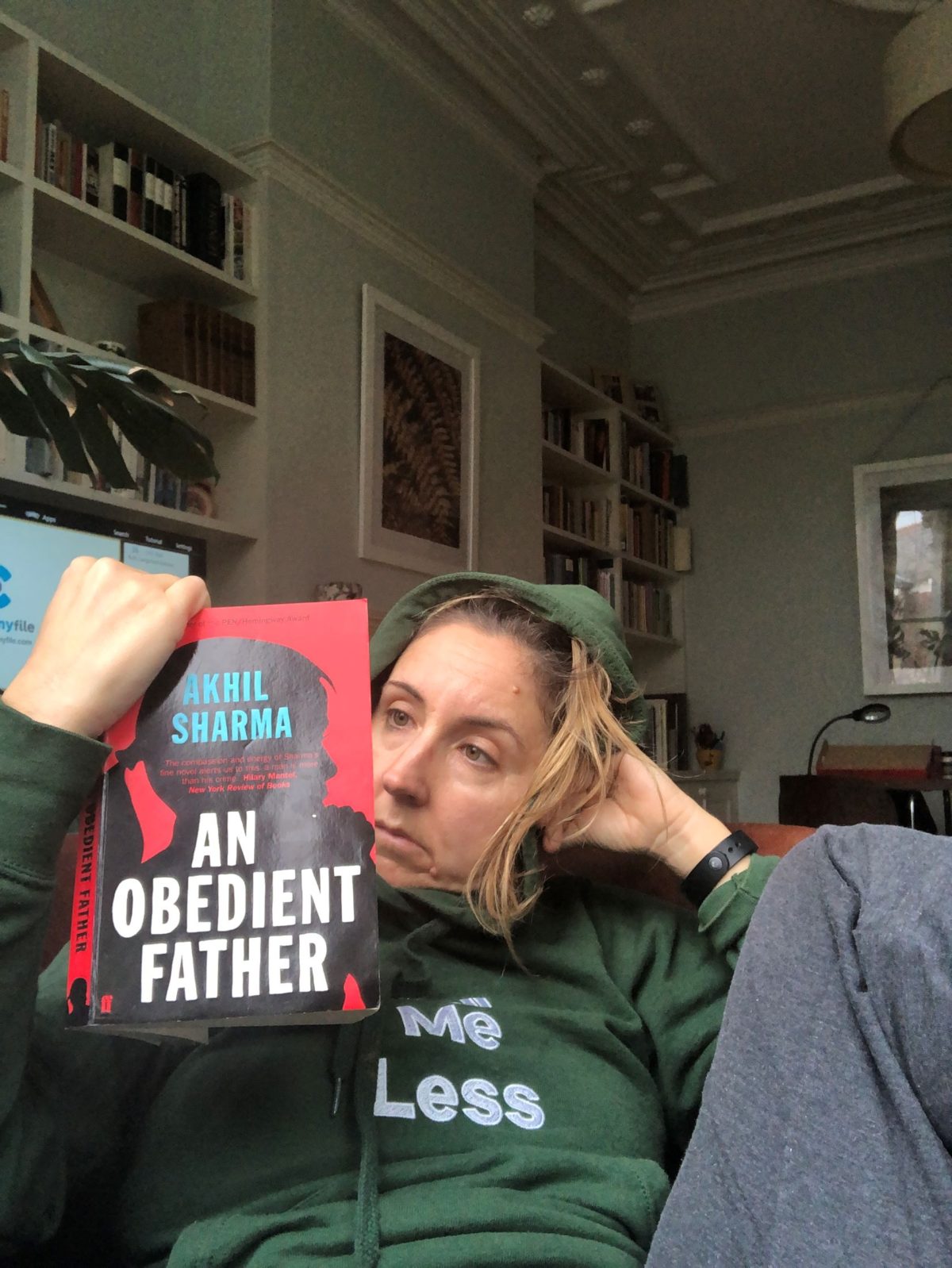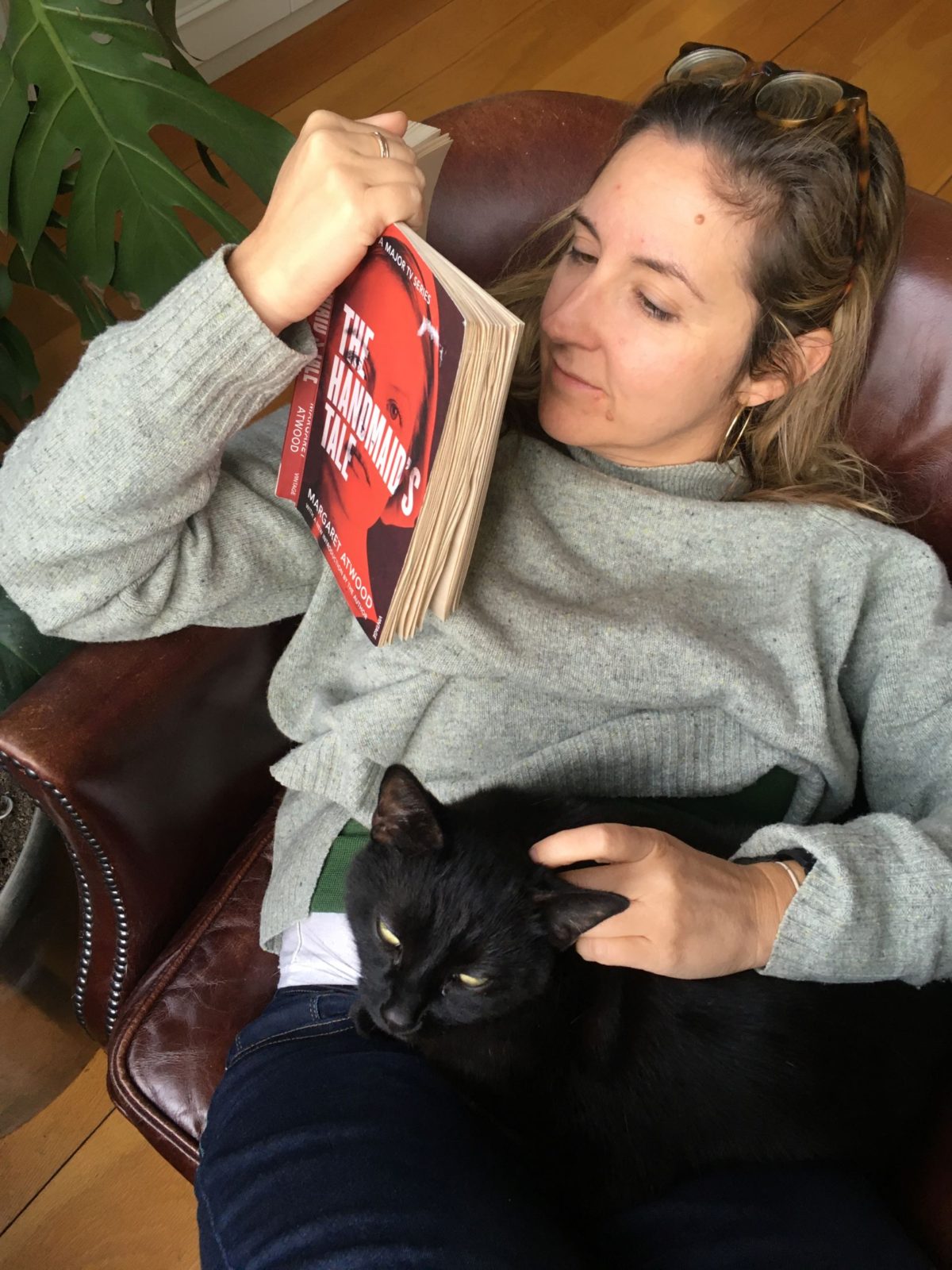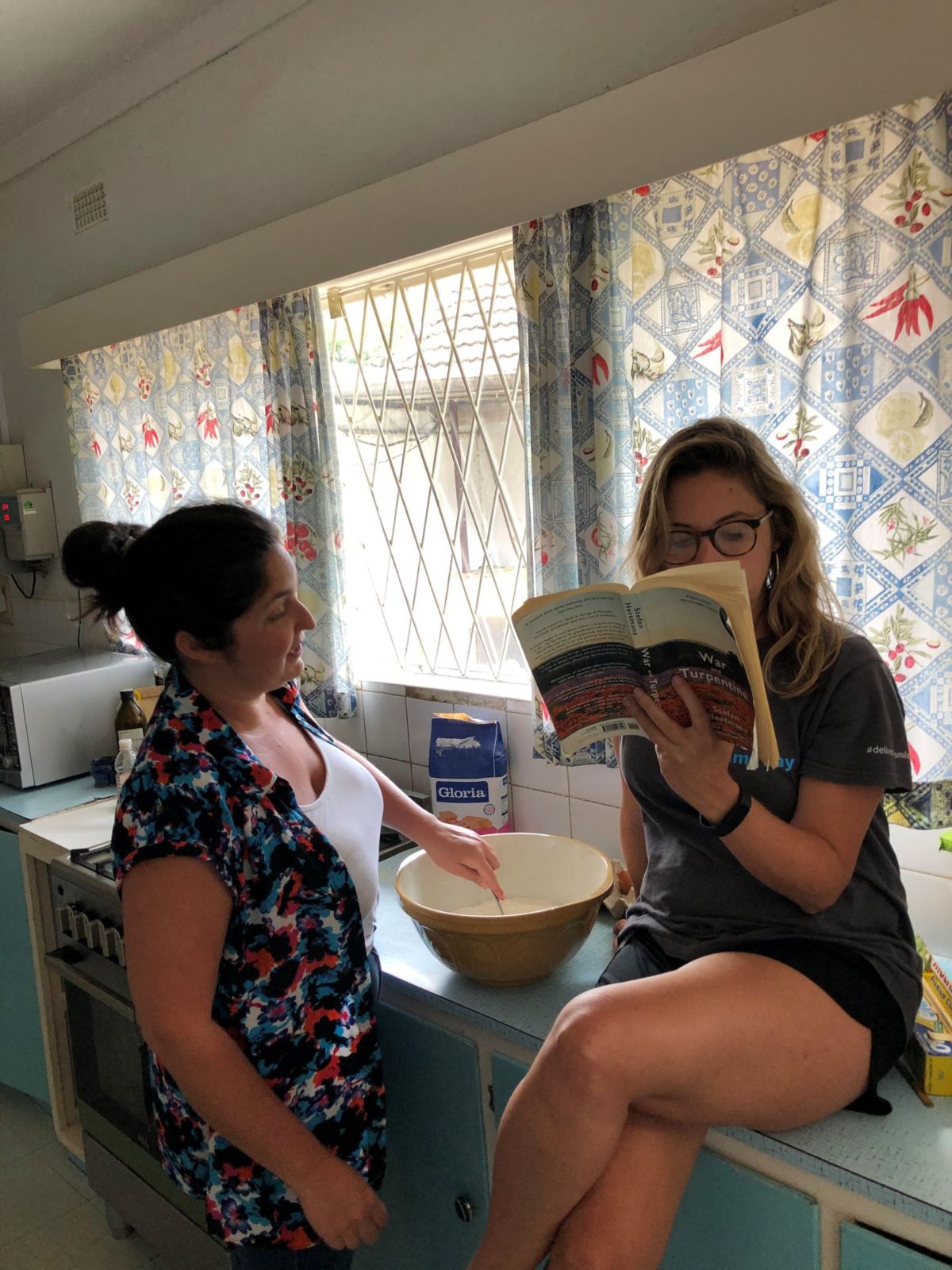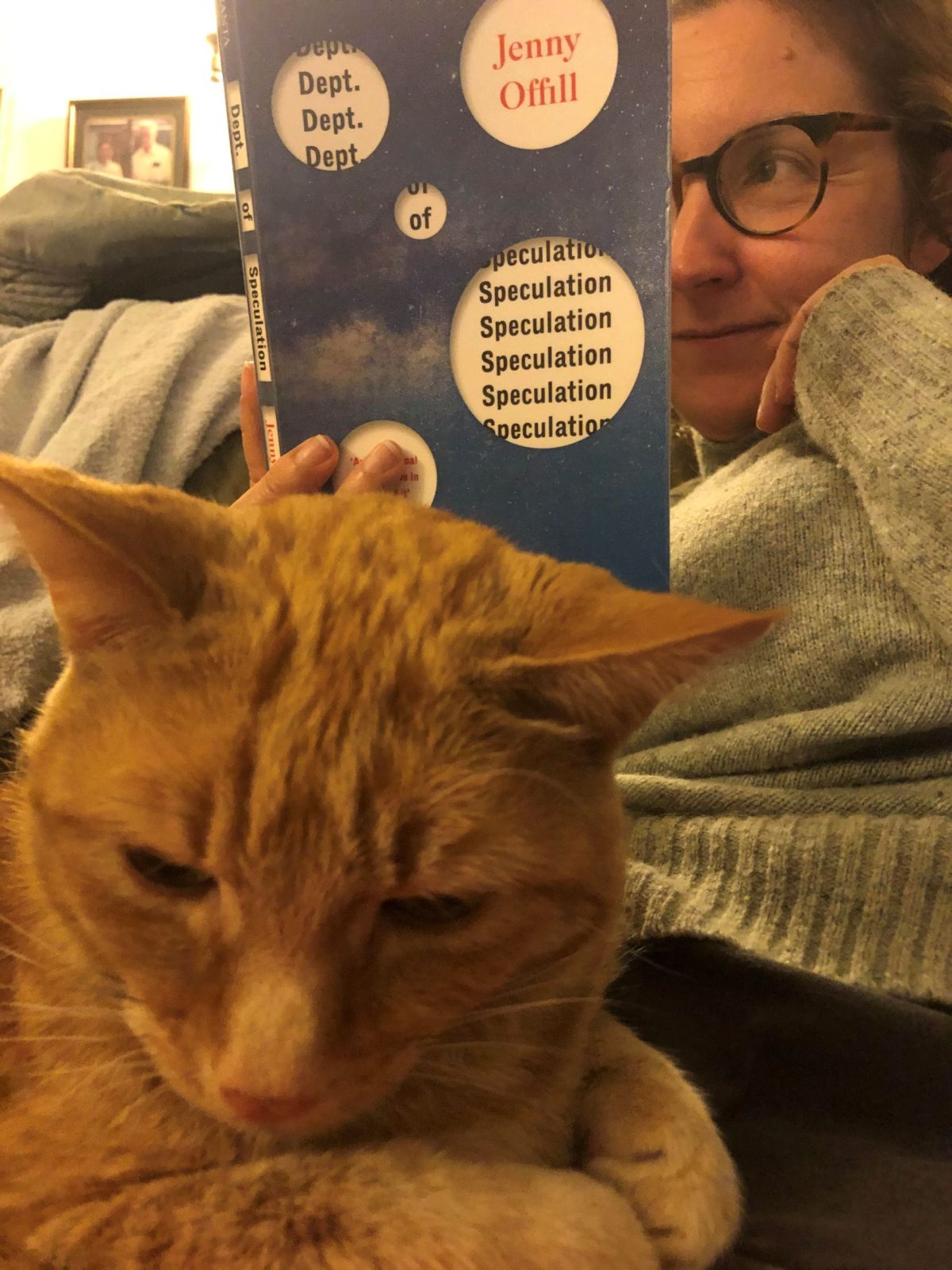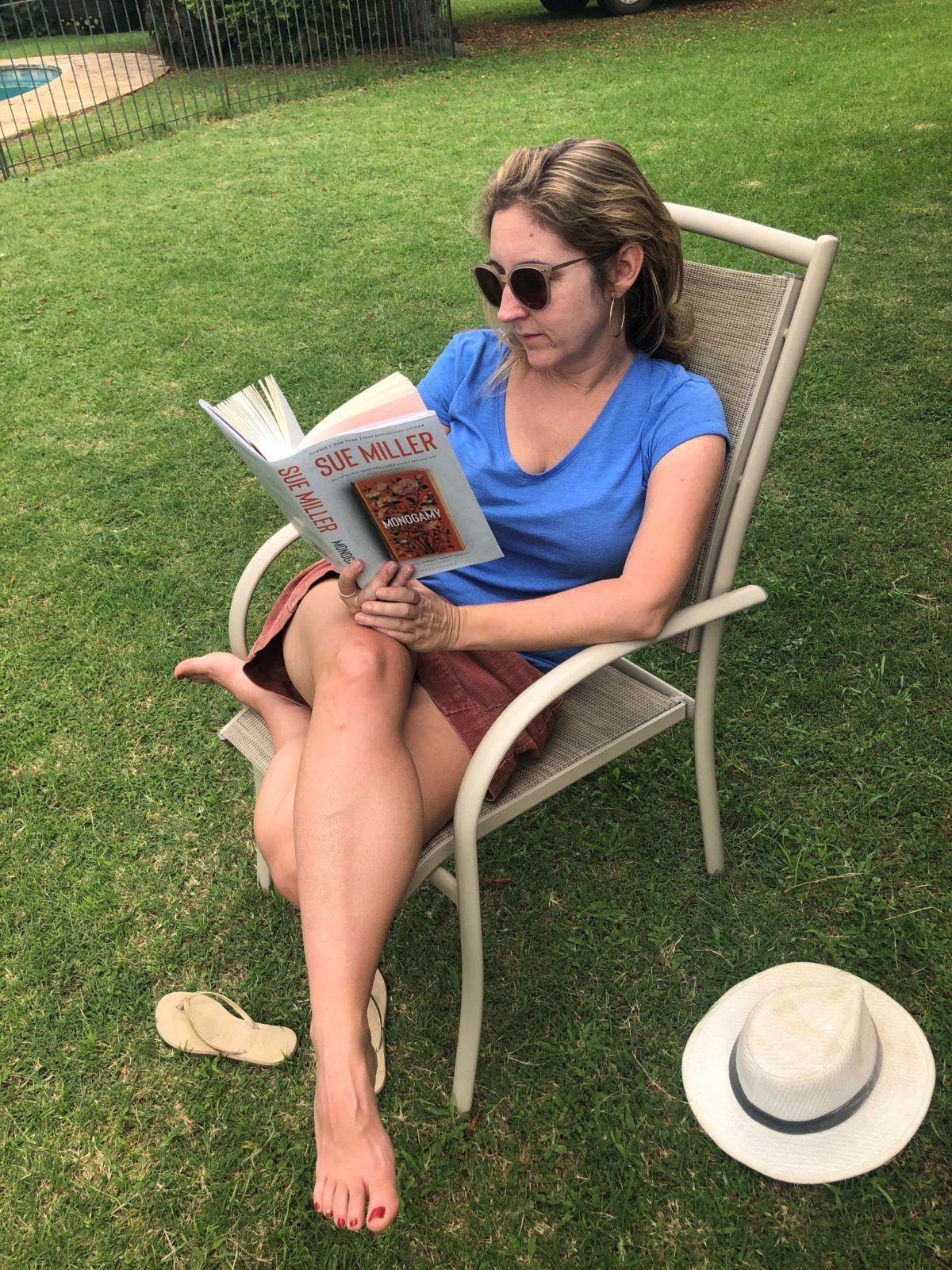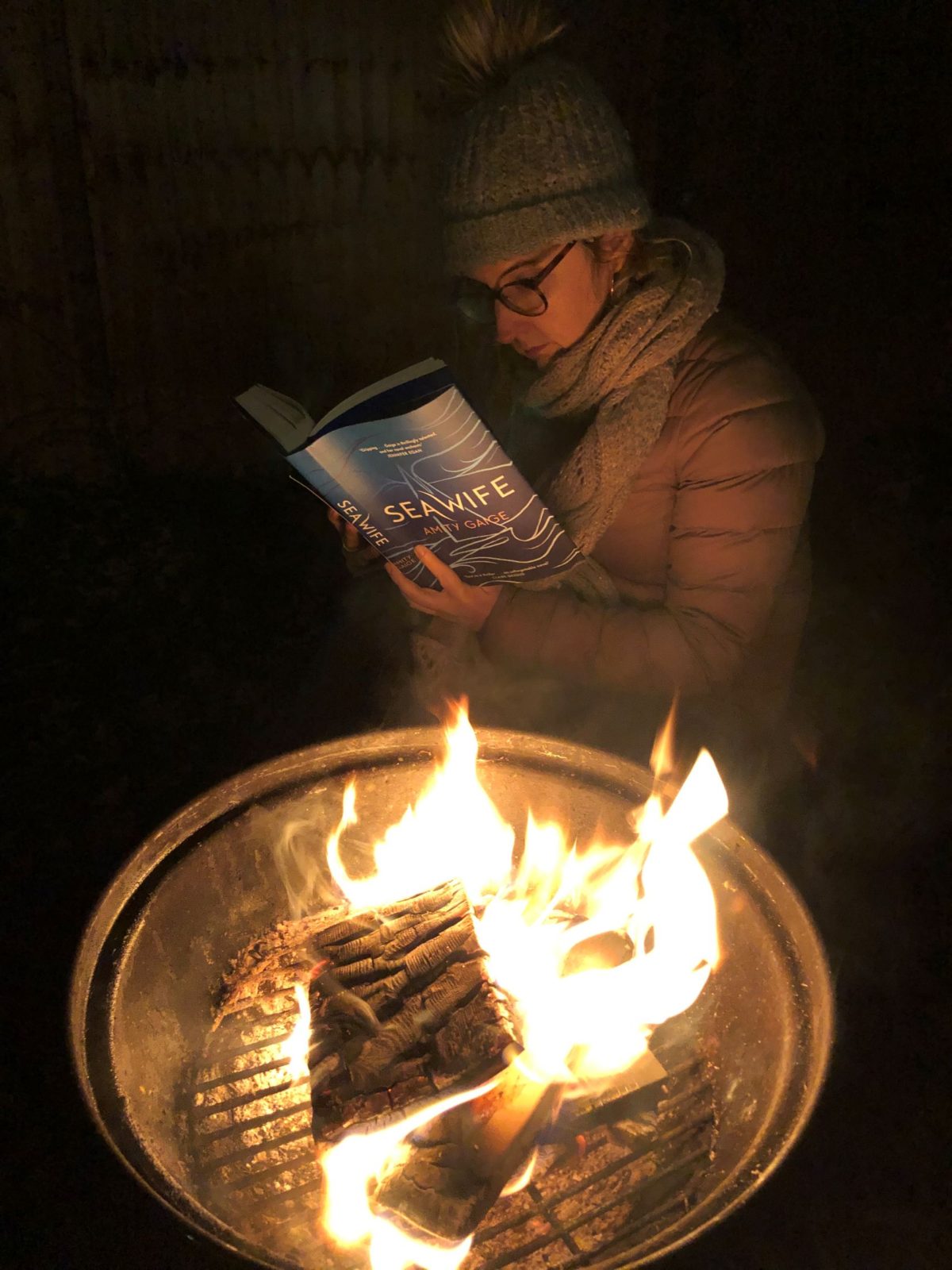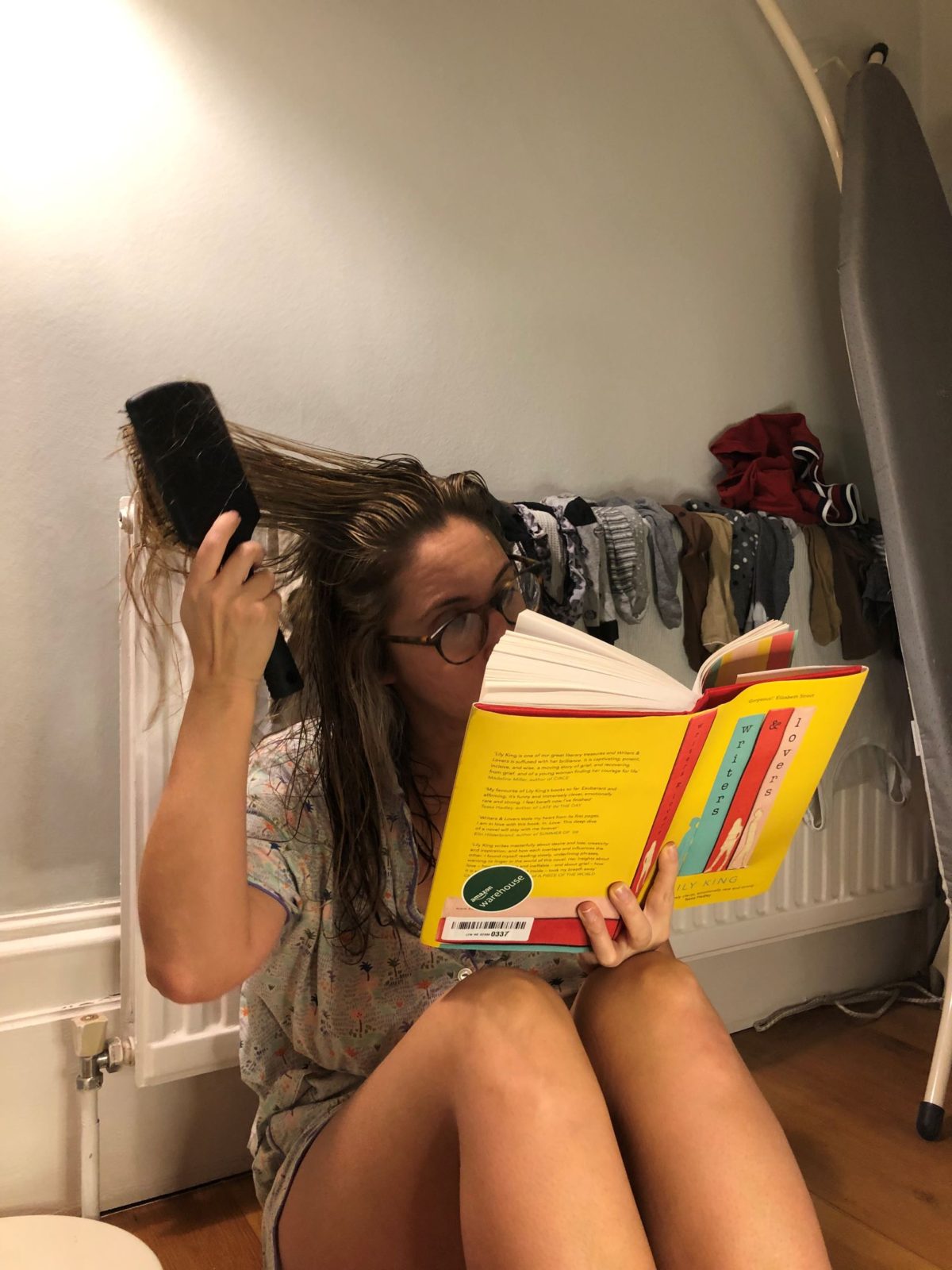This is my third reading of this amazing book (first two are here and here). This time round I re-read it to try and understand how it works. I hoped to understand something about the mystery of good writing, but I am left even more mystified than before. It is so WONDERFUL. How did Andrew Martin DO it? Every other line is funny, and the remainder are either touching or insightful. Did it take him ONE THOUSAND YEARS? A further mystery is this, WHY DON’T MORE PEOPLE LOVE IT? Like how can it be that someone can write such a near perfect novel and the world not close down? That’s the arts for you, I guess. You achieve something near impossible and nobody much cares.
Tag: fiction
AN OBEDIENT FATHER by Akhil Sharma
I had to give up on this book because it was just too believable. It tells the story of a child abuser, from the perspective of the child abuser. Fiction exists to help us understand others. This is a noble goal. But I guess I just don’t really want to understand all others.
In theory, I suppose we all agree that everyone’s human. Like, even Hitler. And Ted Bundy. And I guess I’ve read quite a few books from the perspective of dictators and serial killers, which I’ve never found it too revolting before. This one though: wow. It’s enough to make me wish there is a hell, so that fathers who rape their children can go there.
As I debated whether or not to give up on this book , I spent quite some time thinking about why it was so unreadable. I think its because at least a serial killer, you think, okay, you are crazy. You are working out some mania. And dictators, okay, they kill people, but at least they are like obsessed with a greater Deutschland or whatever. This guy: he rapes her for a while, and then when he gets caught he stops. So he’s not a maniac. He just wanted to rape her and so he did.
Anyway, I feel gross just writing about it. If you think you can stomach it, though, I will say it is startlingly well written, just like Akhil’s previous book FAMILY LIFE). It’s set in India and in addition to the abuse is also a grim look at how unavoidable petty political corruption is. God no wonder I had to quit.
THE HANDMAID’S TALE by Margaret Atwood
I enjoy a feminist dystopia as much as the next person, but in this case, maybe just stick with the TV show.
THE HANDMAID’S TALE is set in an alternative future where fundamentalist Christians have taken over the USA. Women have been returned to exceedingly traditional gender roles, i.e., gross old guys get whatever they want. They have wives, they have female servants, and they have concubines. Sounds pretty sweet. I mean for the gross old guys. Grisly for everyone else. Atwood said one of her rules in writing it was that no atrocity should be included that had not actually happened in history, and it is depressing to contemplate how much of this future dystopia is basically just a re-telling of the past.
It reminded me a bit of STEPFORD WIVES, in which ordinary men are given the option to have their wives’ brains rewired to produce a ‘perfect’ woman. What makes that book so compelling is how believable it is that given the chance, most men would take that option.
So, it was interesting; but I can’t say I enjoyed this book that much. It was all a bit lyrical and literary for me. There were some very questionable dreamlike sections. The TV show cut all those bookish bits. The book without the book. Much better!
FIND ME by Andre Aciman
Never ever read the sequel to any novel you have loved. I take this as a general rule. There’s a risk that what you found heart-breakingly unique is in fact a tired old trick of that particular author, and the novel you love will be tainted in retrospect. I broke this rule by reading FIND ME, a sequel to the wonderful CALL ME BY YOUR NAME, and yes, it was a big mistake.
CALL ME BY YOUR NAME is the story of Elio, and his teenage infatuation. It a powerful and terrifying story of the one who got away. In FIND ME, the father of Elio, who is in his fifties, meets a beautiful twenty-something woman on a train, and they begin a wild romance.
I mean, okay. I’m not saying this could never happen, but for sure in this telling it seems unlikely. Even if you assume a lot of unspoken daddy issues, there is just no way a 24 year old is referring to some old guy’s penis as a ‘lighthouse’ and listening to him talk awkwardly about Goethe. I don’t want to be super harsh, but it kind of read like an extended and slightly pitiful exercise in wishful thinking by a middle-aged man.
Part way through the book we go back to Elio himself, who is now in his thirties. And there I had to stop. So far it had just been such a lot of unmotivated and unlikely drivel, I just couldn’t face the character being polluted by more of the same. So luckily I can’t tell you how it turned out.
WAR AND TURPENTINE by Stefan Hertmans
Here a man uses his grandfather’s actual diaries to recreate life in the early twentieth century. It starts off interesting – for example, we learn how many very specific scents are lost to us. Here he is on his great-grandmother:
Her black apron – he called it a pinafore – smelled like the offal of young rabbits
Horrifyingly specific. Then we get into flashforwards, where we follow the author around modern day and very dull city of Ghent. Things go rapidly downhill. It is not easy to write about the book you are writing. Emmanual Carrere manages it, but few others can, and certainly not this writer. Enjoy:
. . . I would scarely recognize the area. Wild geese, a few sluggish swans in the polluted riverside mud, nervous moorhens in the black, oil-soaked mire. Damaged nature, memory. Pom-pom-pom, pom-pom-pom. Humming, I walk out of the old cemetery. But in the twilight, as I revel in the adagio strains of Edvard Grieg’s ‘Ase’s Death,’ that superlative mourning music for a dead mother, I see, in my mind’s eye, the old phantoms far above me, flickering titanically on the walls of a cave, blown up into eerie shapes by the light of a fire beyond my ken.
This is where I stopped.
DEPT OF SPECULATION by Jenny Offill
Here is someone who has a mental breakdown because she gets cheated on. I don’t know, I know it’s not very nice, but my view is: toughen the f**k up.
Partly this view comes from the fact that this novel refuses to give any character a name, calling the main one ‘the wife,’ and the other one ‘the husband.’ I always find this profoundly pretentious. Even worse, at the end, it abruptly shifts to using the first person singular. I mean: VOM. And all this to mostly tell the story of this couple who moves out of Brooklyn to the suburbs because it is cheaper.
That said, here are two things I did like:
One, a quote from an 1896 book on advice for brides:
The indiscriminate reading of novels is one of the most injurious habits to .which ‘a married woman can be subject. Besides the false views of human nature it will impart . . . it produces an indifference to the performance of domestic duties, and contempt for ordinary realities
I have long wondered why I am indifferent to domestic duties.
Two, this which I find sadly and profoundly true:
But now it seems possible that the truth about getting older is that there are fewer and fewer things to make fun of until finally there is nothing you are sure you will never be.
MONOGAMY by Sue Miller
All I have to say to this novel is OK BOOMER.
It tells the story of a marriage between two older people, and about their circle of friends. We learn a lot about their daily lives, their dinner parties, their CD collections. Enjoy this sample:
She had already prepared the white beans with thyme and olive oil for tomorrow’s dinner, and the plan was to put the lamb in a marinade tonight. But she still had some shopping to do – last minute things. Back in Cambridge, she stopped at Formaggio, the fancy neighbourhood shop, for cheeses – cheeses and crackers and several kinds of olives. They had cherry tomatoes that looked nice in the produce section . .
I’m not even going to get into the ‘frisee salad with new potatoes and bacon’ incident.
The husband is a book store manager, the wife a very under-employed photographer. What we don’t learn is how they are funding two homes, and two kids, and daily fancy meals, on those salaries!?! This is the kind of lifestyle you only get to have if you were born in the 1940s or 50s. MONOGAMY was like having my nose rubbed in inter-generational economic unfairness for 336 pages. I already have had quite enough of it from when those selfish people voted Brexit, secure in the knowledge that they would not be the ones working to pay their fat pensions.
The hook of the book is that after the husband dies the wife finds out he had a brief affair. Rest assured, there is nothing revelatory in this. Everyone acts like they can’t imagine why someone married thirty years might have an affair and yet still love their wife. I mean, snore.
There was only good part, which was where we learn about how the husband gave up on writing a novel:
It had felt liberating to acknowledge this to himself and others, to shed his painful sense of the obligation to be somehow remarkable; but it left him with the unanswered question of what to do with his life, and simultaneously the realization that working on the novel endlessly had been a way to avoid facing that question.
I like the idea of giving up on being remarkable.
PREP by Curtis Sittenfeld
This book reminded painfully me of the nightmarish self-involvement that is adolescence. It tells the story of a girl, Lee, who gets a scholarship to a posh boarding school and spends the entire time behaving as if it is a concentration camp designed for in-depth examination of her choices by everyone concerned. I mean check it out kids: you are not that interesting. No one cares.
PREP covers Lee’s four years of high school, and is an exhausting accounting of all the stupid things she worries about. This includes even positive interactions with others:
This anxiety meant that I spent a lot of time hiding, usually in my room, after any pleasant exchange with another person. And there were rules to the anxiety, practically mathematical in their consistency: the less well you knew the person, the greater the pressure the second time around to be special or charming, if that’s what you thought you’d been the first time; mostly it was about reinforcement. Also: the shorter the time that elapsed from your first encounter to your second, the greater the pressure; . . . And finally: the better the original interaction, the greater the pressure. Often, my anxiety would set in prior to the end of the interaction – I’d just want it to be over while we all still liked each other, before things turned.
Eventually as a senior she starts to hook up with a guy she has had a crush on for a long time. It remains ‘secret’ for reasons that are unclear to her.
Before and after I was involved with Cross Sugarman, I heard a thousand times that a boy, or a man, can’t make you happy, that you have to be happy on your own before you can be happy with another person. All I can say is, I wish it were true.
This did make me laugh. It’s a lot of peoples’ experience, but it’s not something often admitted.
I enjoyed the book, it was very more-ish, but quite interestingly it didn’t actually go anywhere. She got older, but no wiser. I guess we typically assume that books have a shape and some kind of resolution (especially when they appear on the surface to be coming-of-age stories) but in this case, there was none. For a while I found it annoying, but perhaps it’s just honest. Sometimes I guess it’s true you just don’t change, but stay trapped on the same old hamster wheel.
SEA WIFE by Amity Gaige
In this novel a man goes off to live his dreams. He ends up dead. Why is this so often the way? I suspect on some level we don’t want to read about someone leaving their life to do something crazy and it ending well. Because that raises questions about our own life.
Michael convinces his wife to go sailing for a year with their small children. He does not know much about sailing, and his wife is resistant at first, and also at last. But they do it. As the husband says, to the many people who raise objections:
. . I think there’s something wrong with the line of thought that it’s reasonable to defer your modest dream for several decades. What are we, characters in a Greek myth? Waiting for the eagle who comes to our liver every day because in a Greek myth, that’s normal?
SEA WIFE is about their year at sea, but also about their marriage. At first your sympathy is with the wife, because truly the husband does seem kind of crazy, and he apparently voted for Trump. Over time though, I had to say I came round to his side, because the wife really is useless and whiney. She is horrified to find they are in debt, because as she explains:
I never asked questions about money
As if this is a reasonable excuse! How about you are an adult? Like what is the guy supposed to do? She also is relentlessly lazy about learning to sail, and then when the husband gets Dengue fever mid-ocean she acts like a lost puppy. I mean why did Emmeline Pankhurst even bother?
WRITERS AND LOVERS by Lily King
It’s been a long time since I read a book that had a straightforward happy ending. I enjoyed it: it gave me hope. Modern literature never ends on “Reader, I married him.” More like: “Reader, I married him. And that was the beginning of our problems.” It’s like we can’t accept that there can be such a thing as happiness – it always has to be equivocal, and coloured by upcoming death. It’s like we think we are too good for happiness.
WRITERS AND LOVERS is about a woman in her thirties who is deeply in debt (student loans), recently bereaved (her mother), recently dumped (poet!), and has been working on her first novel for six long years, with no end in sight. She pays the bills by waiting tables. Clearly Lily King has waited tables, because there is a lot of detail on this, and I gained a lot more respect for what is involved in waiting tables.
Here she is thinking about this ex-boyfriend, or was he a boyfriend, this was part of the problem:
You taste like the moon, Luke said out in that field in the Berkshires. Fucking poet. On the path a few people are holding hands, drinking from bottles, lying in the grass because they can’t see all the green goose poop.
For all she is now so miserable she has two competing suitors, and much of the book involves her going back and forth between them. She also receives rejections for her novel, and I was reminded how many people sacrifice hugely so we eventually get to those few people who manage to do something wonderful. It’s like the gods of art demand blood.
At one point she starts to have what appears to be a breakdown. This for me is always a red flag: here we go with ‘dream sequence’ type writing, but we avoid this. She sells her novel, she chooses her man: happily ever after.

